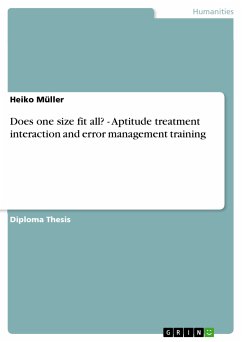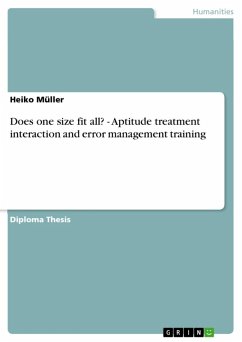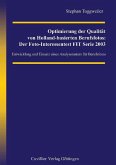Diploma Thesis from the year 2003 in the subject Psychology - Miscellaneous, grade: 1,3 (A), Justus-Liebig-University Giessen, language: English, abstract: Error-management-training - which explicitly allows participants to make errors during training - has been shown to lead to better test performance than error-avoidant training which tries to prevent participants from making errors. Recently some authors suggest to take personal characteristics of the learner into account when choosing the appropriate training for different individuals. We examined the effect of error-management-instructions (rules of thumb that encourage trainees to make errors and learn from them) and the impact of cognitive ability, neuroticism, openness to experience, conscientiousness, goal orientation, achievement motivation and learning strategies on performance depending on the training method. 109 participants took part in a group software training. The groups were randomly assigned to one of 4 training conditions: error training with and without error-management-instructions and error-avoidant training with and without error-management-instructions. Results showed no difference between the 4 training conditions in task performance and declarative knowledge. The error-management-instructions seem to be crucial to error training but obviously did not work in this study. We found 4 interactions that indicate a wipe out effect of error-management-training for the impact of personal characteristics on learning success.
Bitte wählen Sie Ihr Anliegen aus.
Rechnungen
Retourenschein anfordern
Bestellstatus
Storno









